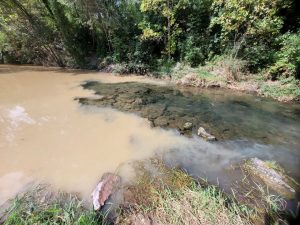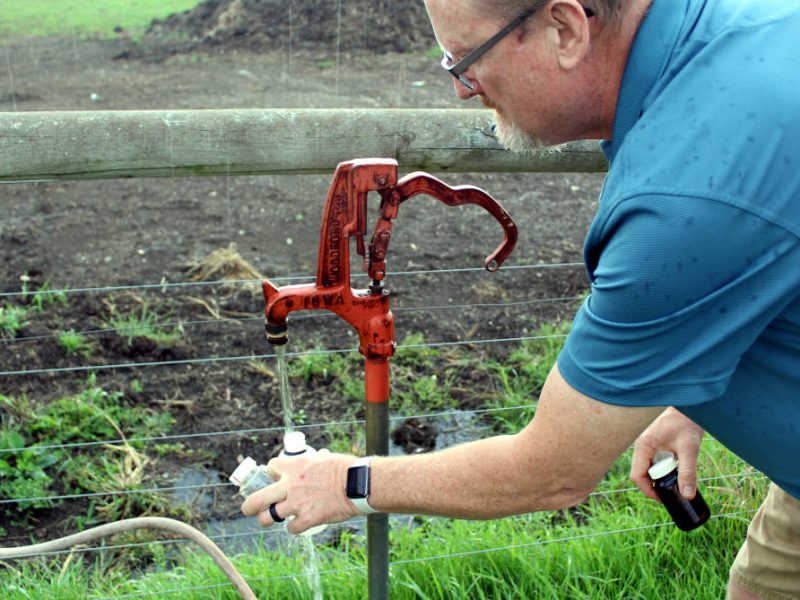(Decorah, Iowa) – A citizens group has filed a lawsuit against the Winneshiek County Board of Supervisors alleging an improper public hearing and inconsistent application of the county zoning plan, following a decision to grant a zoning change for the operation of an anaerobic digester. The Iowa Capital Dispatch reports in June, Winneshiek landowners submitted an application to rezone an approximately five-acre portion of land from agricultural to industrial use to facilitate two 2.5 million gallon digesters. The digesters would convert manure from Full Bohr and KG4 dairies in Ridgeway into natural gas and pump it into a nearby pipeline.
James Larew, an agent for the citizens group, Driftless Water Defenders, and the attorney who prepared the petition, said the clean water advocacy group spoke against the digester project at the board of supervisors’ meeting Aug. 5th, claiming they pose a “serious threat to clean water,” and that should have been considered by the board of supervisors.
Anaerobic digesters are a controversial waste management tool. Proponents argue they turn an already existing waste product into usable fuel. Opponents see it as an excuse to grow herd sizes and exacerbate existing environmental challenges with concentrated animal feeding operations. Despite public concern and a lack of recommendation from the county zoning commission, supervisors voted 3-2 to rezone the parcel.

A proposal by two northeast Iowa dairies to use an anaerobic digester has sparked a lawsuit. (Photo by Lance Cheung/U.S. Department of Agriculture)
The lawsuit, filed Aug. 30 in the county’s district court, takes issue with the decision and process at the Aug. 5th public hearing. At the hearing, County Auditor Benjamin Steines explained that the Iowa Department of Natural Resources controlled the construction permitting for the project, and therefore the role of the county was merely to decide on the zoning issue. The anaerobic digester would need industrial zoning to operate as intended and process the manure into gas. The proposed digester would produce energy equivalent to 1.5 million gallons of gas, per year, according to Planning and Zoning Commission minutes from the applicant’s presentation, July 9th.
Chair of the Board of Supervisors Dan Langreck repeatedly interrupted public comment to reiterate that comments were to pertain to the zoning request and not the merits or consequences of digesters. Langreck shut down requests from Supervisor Shirley Vermace to “calm it down” and to “stop censoring the public.” The lawsuit against the board alleges it denied the public full and fair opportunity to be heard. The lawsuit also argues the decision is inconsistent with the Winneshiek County Comprehensive Plan. The county zoning commission noted the same reason in its July 16 decision to deny the request for zoning change.
Minutes from the zoning commission meeting show commissioners were also concerned with the possibility of leaks from the project and at having a limited amount of time to evaluate the project. The Zoning Commission report was not provided to Winneshiek residents who attended the hearing, though County Zoning Administrator Tony Phillips told Capital Dispatch that anyone could have requested the document.
The petition asks the court to set aside the board’s decision to rezone and that the board turn over any documents and correspondence between the county and applicants. The Department of Natural Resources issued air quality construction permits for the project on Tuesday, and the Winneshiek County Board of Adjustments approved a Conditional Use Permit for the project Sept. 3.









